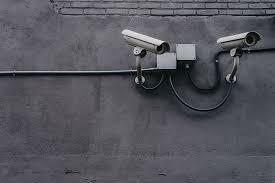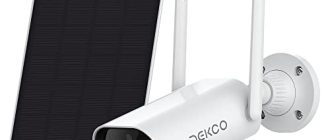
Is it better to have wired or wireless security cameras
When it comes to ensuring the safety of your home or business, security cameras are an essential tool. But with so many options available, how do you know which one is the best choice for you? One of the main considerations is whether to go with wired or wireless security cameras.
Wired security cameras have been around for years and have a proven track record of reliability. These cameras are connected directly to a recording device or monitor using cables. This means that they require a physical connection, making installation a bit more complex and time-consuming. However, once set up, wired cameras are known for their stability and consistent performance.
On the other hand, wireless security cameras are becoming increasingly popular due to their ease of installation and flexibility. These cameras connect to a network wirelessly, eliminating the need for cables. This makes them ideal for situations where it may be difficult or impractical to run wires, such as in older buildings or outdoor areas. Additionally, wireless cameras can be easily moved or repositioned, allowing you to adjust your surveillance coverage as needed.
Ultimately, the choice between wired and wireless security cameras comes down to your specific needs and preferences. If you value reliability and are willing to deal with the installation process, wired cameras may be the better option. However, if flexibility and ease of installation are your priorities, wireless cameras will likely be the best choice for you.
When it comes to protecting your property and loved ones, investing in a good security camera system is always a wise decision. Whether you choose wired or wireless cameras, having that extra layer of protection will give you peace of mind and ensure that you are always aware of what is happening in and around your home or business.
Benefits of Wired Security Cameras
When it comes to security cameras, there are two main options: wired and wireless. While wireless cameras may offer convenience, wired cameras have their own unique benefits that make them a popular choice for many homeowners and businesses.
One of the main advantages of wired security cameras is their reliability. Unlike wireless cameras that rely on a Wi-Fi signal, wired cameras are directly connected to the security system. This ensures a stable and consistent connection, eliminating the risk of dropped signals or interference. With a wired camera, you can have peace of mind knowing that your footage is always being captured and transmitted without any interruptions.
Another benefit of wired security cameras is their increased security. Since they are physically connected to the security system, it is nearly impossible for hackers to access the footage or tamper with the camera’s settings. This makes wired cameras an ideal choice for those who prioritize the protection of their property and privacy.
In addition, wired cameras offer higher resolution and better image quality compared to wireless cameras. Because they have a direct connection, the footage captured by wired cameras is not compressed or degraded during transmission. This means that you can expect clearer, more detailed images and videos, which are essential for accurate identification and surveillance.
Furthermore, wired security cameras do not rely on batteries or external power sources. They are powered directly through the security system, which means that you don’t have to worry about changing batteries or running out of power. This makes wired cameras a low-maintenance option that is always ready to capture any suspicious activity.
Lastly, wired cameras tend to have a longer lifespan compared to wireless cameras. Since they do not rely on wireless technology, wired cameras are not affected by signal range limitations, environmental factors, or technological advancements. This means that they can continue to function reliably for many years, providing long-term security for your property.
| Benefits of Wired Security Cameras: |
| Reliable and stable connection |
| Increased security against hacking |
| Higher resolution and better image quality |
| No need for batteries or external power sources |
| Long lifespan |
Reliable Connection
When it comes to security cameras, it is important to have a reliable connection. Wired security cameras have a direct connection to the recording device or network, ensuring a consistent and stable connection at all times. This is because they use physical cables to transmit data and power, which eliminates the risk of interference or signal loss.
On the other hand, wireless security cameras rely on Wi-Fi or other wireless technologies to transmit data. While wireless cameras offer convenience and flexibility in terms of installation, they may suffer from signal interruptions or weak connections, especially if there are obstacles or distance between the camera and the router.
In situations where a continuous and uninterrupted monitoring is crucial, wired security cameras are the better choice. They provide a more reliable connection, ensuring that you can always access and view the camera feed without any disruptions. Additionally, wired cameras are less susceptible to hacking or unauthorized access compared to wireless cameras, making them more secure.
However, if you prioritize mobility and ease of installation over constant connectivity, wireless cameras may be suitable for your needs. They are easier to install and can be placed in locations where it may be difficult or impractical to run cables.
In conclusion, while both wired and wireless security cameras have their pros and cons, if you need a camera system with a reliable connection and enhanced security, it is better to opt for wired security cameras.
Higher Resolution
One of the key factors to consider when choosing between wired or wireless security cameras is the resolution. Resolution refers to the clarity and level of detail that a camera can capture. Having a higher resolution is important for security purposes as it allows for clear identification of individuals and accurate recording of events.
Wireless security cameras often have lower resolution compared to their wired counterparts. This is because wireless cameras use Wi-Fi signals to transmit video footage, which can result in a loss of quality and resolution. On the other hand, wired cameras use physical cables to transmit data, enabling a higher quality and resolution.
Having a higher resolution is crucial for security purposes as it allows for better surveillance and identification. In situations where every detail matters, such as monitoring entrances or capturing license plate numbers, having a higher resolution camera can make a significant difference in the ability to capture clear and accurate footage.
While wireless security cameras may have convenience on their side, especially when it comes to installation and flexibility, wired cameras often come out on top in terms of resolution. If the security and clarity of footage is a top priority, then opting for wired cameras is the better choice.
No Signal Interference
One of the key advantages of wired security cameras is that they do not suffer from signal interference. This is because they are connected directly to the recording device through cables, ensuring a stable and reliable connection.
On the other hand, wireless cameras rely on Wi-Fi signals to transmit the video feed. While wireless technology has improved significantly over the years, there is still a chance for signal interference. Factors such as thick walls, other electronic devices, or even neighboring Wi-Fi networks can cause disruptions in the wireless signal.
Having a wired camera system eliminates this concern. With a wired setup, you don’t have to worry about the quality of the video feed being compromised due to signal interference. This makes wired cameras a better choice for areas with a lot of wireless devices or congested Wi-Fi networks.
In addition, wired cameras tend to have a more consistent and reliable connection compared to their wireless counterparts. This is especially important if you want to monitor your property around the clock without any interruptions.
While wireless cameras may seem more convenient since they don’t require cables, it is essential to consider the potential signal interference that they may experience. In terms of signal reliability, wired cameras prove to be the better choice.
Longer Range
When it comes to range, wired security cameras have a definite advantage over their wireless counterparts. With wired cameras, you’re not limited by the strength of your Wi-Fi signal or the distance between your camera and your router. This means that you can place wired security cameras in areas that might be too far away for wireless cameras to reach.
Whether you’re trying to monitor your backyard, a large parking lot, or a warehouse, the longer range of wired cameras allows you to cover more ground and capture more detail. This is especially important in security scenarios where you need to monitor a wide area or have a lot of ground to cover.
Additionally, wired cameras typically have stronger signals and are less susceptible to interference than wireless cameras. This means that you can expect a clear and reliable connection with wired cameras, even over long distances.
Ultimately, if range is a priority for you and you need to ensure that your security cameras can reach every corner of your property, wired cameras are the better choice.
More Secure
When it comes to security, wired cameras are generally considered to be more secure than wireless cameras. This is because wired cameras require a physical connection to a power source and a central recording device, making them less vulnerable to hacking or interference.
Wireless cameras, on the other hand, transmit data through Wi-Fi or radio signals, which can be intercepted or compromised by hackers. While these cameras have encryption technology to protect the transmitted data, it is still possible for skilled hackers to bypass these security measures.
With wired cameras, the data is transmitted through a physical cable, making it much more difficult for hackers to gain access to the footage. Additionally, the power source for wired cameras is typically located inside the building, so there is no reliance on external batteries that can be tampered with.
Overall, if security is the primary concern, wired cameras are the better choice. However, it’s worth mentioning that wireless cameras have made significant advancements in recent years and offer convenience and flexibility that wired cameras cannot match. It ultimately depends on the specific needs and priorities of the user.
Benefits of Wireless Security Cameras
Wireless security cameras have become increasingly popular in recent years due to their numerous advantages over wired security cameras. These benefits make wireless security cameras a better choice for many homeowners and businesses.
One of the main advantages of wireless security cameras is their ease of installation. Unlike wired cameras, which require complex wiring and professional installation, wireless cameras can be easily set up by the users themselves. This not only saves time and money but also allows for flexible camera placement.
Another benefit of wireless security cameras is their flexibility. Since they are not connected to a physical network, wireless cameras can be easily moved and repositioned as needed. This is especially useful for homeowners or businesses that may want to change the location of their cameras or add new ones to enhance their security setup.
Wireless security cameras also offer better scalability compared to wired cameras. It is much easier to expand a wireless security system by adding more cameras, as there is no need for additional wiring or infrastructure. This makes wireless security cameras an ideal choice for large homes, commercial properties, or businesses with multiple locations.
In terms of security, wireless cameras are just as reliable as their wired counterparts. They use encrypted signals to transmit video footage, ensuring that it cannot be intercepted or accessed by unauthorized individuals. Additionally, most wireless cameras have built-in backup systems, so even if the internet or power goes out, the cameras will continue to record and store footage.
Lastly, wireless security cameras offer greater convenience and accessibility. With wireless cameras, users can access live video feeds and recorded footage from anywhere using their mobile devices or computers. This allows homeowners and business owners to keep an eye on their property in real-time, even when they are away.
| Advantages of Wireless Security Cameras: |
| 1. Easy installation |
| 2. Flexibility in camera placement |
| 3. Scalability for expanding security systems |
| 4. Reliable security features |
| 5. Convenient access to video feeds |
Easy Installation
When it comes to installation, wired security cameras can be a bit more complicated. They require running cables and wires through walls or ceilings to connect the cameras to a central recording system. This process can be time-consuming and may require professional assistance.
On the other hand, wireless security cameras are much easier to install. They do not require any cables or wires, as they are connected through Wi-Fi or Bluetooth. All you need to do is find a suitable location for the camera, connect it to your home network, and you’re good to go. This eliminates the need for any drilling or extensive wiring.
Therefore, in terms of installation, wireless security cameras have the upper hand. They offer a faster and more convenient setup process, making them the better choice for those looking for ease of installation.
Flexible Placement
One of the key advantages of wireless security cameras is the flexibility they offer in terms of placement. Unlike wired security cameras, which require a physical connection to a power source and a network, wireless cameras can be placed anywhere within the range of a Wi-Fi signal.
This flexibility means that you can easily move and reposition wireless cameras as needed, without the hassle of dealing with cables and wires. Whether you need to monitor different areas of your property, change the angle of the camera, or move it to a completely new location, wireless cameras make it much easier to do so.

In addition, the wireless nature of these cameras allows for better coverage and surveillance. You can have multiple wireless cameras set up throughout your property, providing a comprehensive and seamless security system. This is especially advantageous for larger properties or areas that are difficult to reach with wired connections.
Furthermore, the flexibility of wireless cameras extends to the ability to install them in hidden or inconspicuous locations. This can be particularly useful if you want your security cameras to be discreet and not easily noticeable by potential intruders. With wireless cameras, you have more options when it comes to finding the best placement that suits your security needs.
| Flexibility | Less flexible due to physical connections | More flexibility in terms of placement |
| Installation | Requires more effort and time for wiring | Quick and easy installation without wires |
| Coverage | May be limited by wired connections | Can have better coverage with multiple cameras |
Remote Access
One of the key advantages of wireless security cameras is the ability to remotely access them. With wired security cameras, you are limited to viewing the footage on the premises where the cameras are installed. This can be inconvenient if you need to monitor your property from a remote location.
However, with wireless security cameras, you can easily access the camera feeds from anywhere with an internet connection. This means that you can keep an eye on your property even when you are away on vacation or at work.
The remote access feature of wireless security cameras is especially beneficial for homeowners and business owners alike. Homeowners can check in on their property while they are away to ensure that everything is secure. Business owners can monitor their employees and keep tabs on any suspicious activities.
Furthermore, remote access allows for quick and easy sharing of footage. If an incident occurs on your property and you have wireless security cameras, you can easily share the recorded footage with law enforcement or insurance companies.
In conclusion, the ability to remotely access wireless security cameras makes them a better choice for security purposes compared to wired cameras. It provides convenience, flexibility, and peace of mind knowing that you can monitor your property from anywhere.
Expandability
When it comes to expandability, both wired and wireless security cameras have their pros and cons. However, in terms of scalability and flexibility, wireless security cameras have the upper hand.
Wired cameras may be limited by the length of the cables and the number of ports on the recorder. If you want to add more cameras to your system, you may need to invest in additional cabling and a larger recorder. This can be time-consuming and costly.
Wireless cameras, on the other hand, can be easily expanded without the need for extra cabling. All you need is a strong Wi-Fi signal and a compatible receiver or NVR (network video recorder). With wireless cameras, you can easily add or remove cameras from your system as needed, making it a more flexible and convenient option.
| Expandability | Limited by cables and ports | Easily expandable without extra cabling |
| Scalability | May require larger recorder | Simple addition or removal of cameras |
| Flexibility | Less flexible due to wiring limitations | More flexible and convenient |
Overall, if you prioritize expandability, wireless cameras are the better choice. They offer more convenience and flexibility in adding or removing cameras from your security system.
Minimal Disruption
One of the major advantages of wireless security cameras is that they require minimal disruption during installation. Unlike wired cameras, which need to be connected to a power source and may require drilling and wiring through walls, wireless cameras can be easily mounted anywhere within range of the Wi-Fi network. This means that you can easily move the cameras around if needed, without having to deal with wires or other complex installations.
Moreover, wireless security cameras are better suited for renters or temporary setups. Since they don’t require drilling or wiring, it is much easier to install and remove them without leaving permanent marks or damage. This makes wireless cameras a convenient choice for those who are not looking for a long-term security solution in a specific location.
Despite the convenience of wireless cameras, it is important to note that they have their limitations. The signal strength of Wi-Fi networks may vary depending on distance and obstacles, which could potentially affect the performance of the cameras. Additionally, wireless cameras may be more susceptible to hacking or interference from other Wi-Fi devices, although modern security measures have greatly improved the overall security.
Overall, when it comes to minimal disruption during installation, wireless security cameras have an advantage over their wired counterparts. They offer a convenient and flexible solution that is easy to set up and move around. However, it is important to consider the potential limitations and security concerns associated with wireless cameras before making a decision.
Differences between Wired and Wireless Security Cameras
When it comes to security, both wired and wireless cameras have their own advantages and disadvantages.
Wireless security cameras are easy to install and can be placed almost anywhere, as they don’t require any physical connections. They are also more flexible in terms of placement, allowing for easy adjustments or relocation if needed. However, wireless cameras rely on a stable Wi-Fi connection, and if the connection is weak or interrupted, it may impact the performance of the camera.
On the other hand, wired security cameras are known for their stable and reliable connection, as they are directly connected to a power source and recording device. They don’t rely on Wi-Fi and are not affected by signal interference or weak connection. Additionally, wired cameras generally have higher image quality and can support longer cable lengths, making them suitable for larger areas.
Another difference between wired and wireless security cameras is the power source. Wired cameras typically require a constant power supply, while wireless cameras can operate on battery power. This means that wired cameras may need professional installation to ensure proper power supply, while wireless cameras offer more flexibility in terms of placement.
In conclusion, the better choice between wired and wireless security cameras depends on your specific needs and preferences. If you prioritize a stable and reliable connection, higher image quality, and have the option for professional installation, wired cameras may be the better choice for you. However, if you value ease of installation, flexibility in placement, and don’t mind the occasional performance fluctuation due to Wi-Fi signal, wireless cameras could be a suitable option.
Connection Types
When it comes to security cameras, you have two main connection types: wired and wireless. Both options have their own advantages and drawbacks, so it’s essential to understand the differences before making a decision.
Wireless security cameras are becoming increasingly popular because they offer flexibility and convenience. With wireless cameras, you don’t have to worry about running cables through your property, making them easier to install and move around. They also allow you to monitor your property remotely, as you can access the camera footage through a smartphone or computer.
On the other hand, wired security cameras still have their place and advantages. For a start, they tend to provide a more reliable connection, as they are less vulnerable to interference. Wired cameras don’t rely on wireless signals, which can be affected by obstacles such as walls or other devices. Additionally, wired cameras don’t require batteries or charging, ensuring constant monitoring and eliminating the need for ongoing maintenance.
Ultimately, the choice between wired and wireless security cameras depends on your specific needs and preferences. If you value convenience, mobility, and remote access, wireless cameras may be the better option for you. However, if you prioritize reliability and want a more permanent and robust solution, wired cameras may be the better choice.
Power Source
When it comes to security cameras, having a reliable power source is essential. Wired cameras are typically powered through a direct electrical connection, which ensures a consistent and uninterrupted power supply. This means that wired cameras can operate 24/7 without the need for frequent battery changes or recharging.
On the other hand, wireless cameras rely on batteries or solar power for their energy source. While this may seem convenient, it also introduces the risk of running out of power at critical moments. Wireless cameras require regular maintenance to ensure that their batteries are charged, and even then, there is always a chance that they may die unexpectedly.
In terms of power source, wired cameras have a distinct advantage over wireless cameras. Their direct electrical connection provides a better guarantee of continuous and reliable power, which is crucial for maintaining effective security surveillance.
Maintenance
Both wired and wireless security cameras require regular maintenance to ensure optimal performance. However, wireless cameras tend to have less maintenance requirements compared to their wired counterparts.
One advantage of wireless cameras is that they do not have complex wiring systems that could get tangled or damaged over time. This means that you do not have to spend time and effort untangling wires or repairing damaged cables. In addition, wireless cameras are often easier to install, as they do not require drilling or running cables through walls.
However, wireless cameras do have their own maintenance needs. Since they rely on batteries or power sources, you need to regularly check and replace batteries or ensure a stable power supply. Additionally, you should periodically clean the camera lens to prevent dust or debris from affecting the image quality.
On the other hand, wired cameras require more maintenance due to their wiring system. Over time, the cables may need to be replaced or repaired, especially if they are exposed to harsh weather conditions or physical damage. You may also need to periodically check and clean the connection points to ensure a stable and clear signal.
In conclusion, when it comes to maintenance, wireless cameras have the advantage of being easier to install and having less complex wiring systems. However, both wired and wireless cameras require regular checks, cleaning, and, if necessary, repair or replacement to ensure optimal performance.
Q&A:
What are the advantages of wired security cameras?
Wired security cameras have several advantages over wireless ones. Firstly, they provide a more stable and reliable connection since they are physically connected to the recording device. This means that you won’t experience any signal drops or interference caused by other devices. Additionally, wired cameras are not vulnerable to hacking since they are not connected to the internet. Lastly, they can be more cost-effective in the long run, as they don’t require batteries or regular charging.
Are wireless security cameras easy to install?
Yes, wireless security cameras are generally easier to install compared to wired ones. They don’t require any drilling or running cables throughout your house, which makes the installation process hassle-free. You just need to place the camera in the desired location, connect it to a power source, and pair it with your recording device or smartphone. This simplicity makes wireless cameras a popular choice for those who prefer DIY installations.
Can wireless security cameras be hacked?
While it is technically possible for wireless security cameras to be hacked, the risk is relatively low if you take proper security measures. To minimize the chances of hacking, it is important to choose a reputable brand and use strong passwords for both your Wi-Fi network and camera’s login credentials. Regularly updating your camera’s firmware and keeping your network secure can also help protect against potential hacking attempts.
What are the disadvantages of wireless security cameras?
Wireless security cameras have a few disadvantages compared to their wired counterparts. Firstly, they can be susceptible to signal interference and drops, especially if there are other devices or obstacles in the vicinity. This can result in a less reliable connection and potential loss of video footage. Secondly, wireless cameras need a stable Wi-Fi network to function properly, so if your internet goes down, you’ll lose access to the camera’s live feed. Lastly, wireless cameras require regular charging or battery replacements, which can be inconvenient for some users.
Which type of security camera is better for outdoor use?
When it comes to outdoor use, wired security cameras are generally considered better than wireless ones. This is because wired cameras provide a more reliable and stable connection, which is important for outdoor surveillance. Additionally, wired cameras are usually more weatherproof and can withstand extreme temperatures, moisture, and other outdoor hazards better than their wireless counterparts. If you want to ensure consistent and high-quality video footage for outdoor security, a wired camera system is the better choice.






